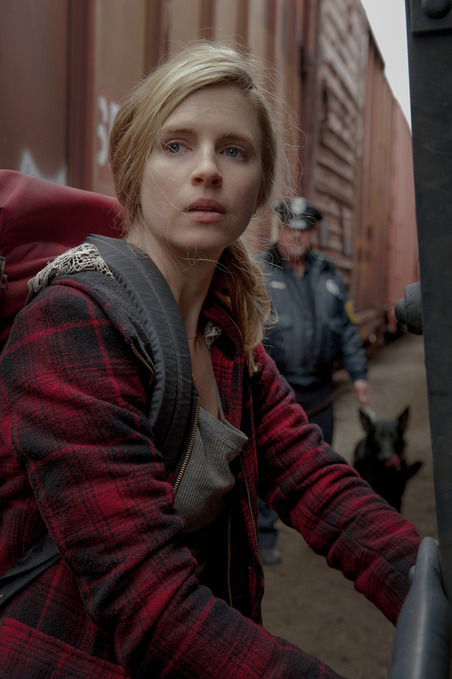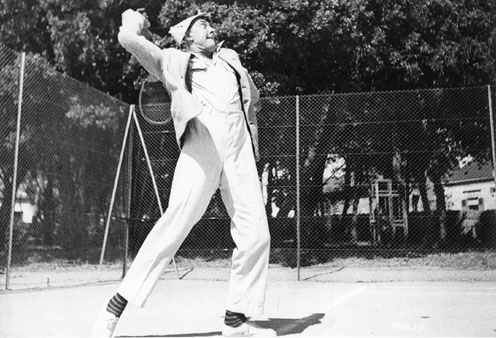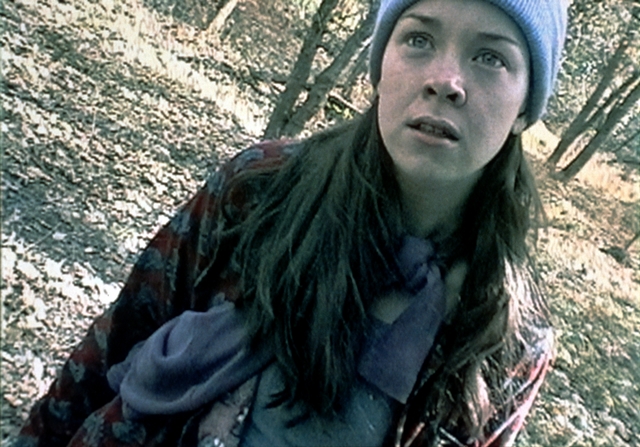Alicia, Californian, about seventeen, goes on holiday to Chile to meet up with her bestie cousin Sarah for some adventures in the Latin paradise. And -
Hang on, before that, we have a vision of crystal sea water and high rocks. Then we have a boy's torso wearing a white jumper, its owner singing along to The Knife's Pass It Around on his ipod. His voice is tuneless but he sounds like he's smiling. I says sounds like as we don't get more than his torso while this is happening. He's at the open door of an SUV, waiting. In minutes, the others arrive, also young, also seen as torsos. Before this gets too experimental the shot lifts to show us the faces of a group of happy young people speaking a mix of English and Spanish, packing the car for a holiday. And THEN we see Alicia.
Button-cute but tired from air travel, she shyly insists on a shower before they head off and wins the point. Sarah chats to her while Alicia bathes. When the dolly shot moves from Sarah at the sink, past the shower curtain and into the shower itself all we see is the water jetting down. Then we are taken down to the tub and see the golden teenage girl foetally folded into herself at the bottom of the bowl. She converses easily enough but that's what she has made of herself and it's only about five minutes in. If this were the teen horror movie the film's marketing would disappoint you with she would be the final girl, nebbish and withdrawn, ready, after severe testing, to stand and quell the threat. But we are not just travelling to the Chilean wilderness here, we are speeding away from convention.
Even when, just after the crew have cleared the city (which deliberately lacks presence in this piece), Sarah begs off temporarily, having to go back to Santiago to re-sit an exam, leaving the already intimidated Alicia to cope with strangers in strange land, the cliche feels checked off before the defusing squad gets in. Michael Cera's important but secondary role is also against type, he's as geeky virgin as ever but there is an unloveable brittleness to it here. Even his normal golden curls are dyed charcoal in case you were wanting him to emanate a little warmth. The maternal Barbara couldn't care less about the others, seemingly lumped with them while she heads to the country house for her own studies. Which leaves Augustin, the slightlyolder boyfriend of Sarah who seems to have an interest in his absent partner that transcends love or lust. He alone of the Sarahless remainder offers Alicia any kindness but is quick to declare its boundaries. Unsurprisingly, Alicia is having trouble sleeping.
Daily excursions feature the attempted idle slaughter of the local wildlife and equally idle hijinks like roller tennis or poitnlessly breaking into the neighbours' holiday house in their absence. Alicia warms a little to this, getting used to it and allowing herself a little alcohol-assisted adjustment. When a clumsy response to one of Brink(Cera)'s uncomprehending barrier breaches goes wrong she runs into the thick black night and finally gets signal enough to call Sarah who tells her in a strangely confident voice that she and Alicia both know she din't really go back for an exam and that she probably wouldn't be coming after all. Alicia freaks and flies to her room. The next morning Barbara tells her that Sarah just called to say she's just got in and should be there any minute.When the two catch a moment to talk privately Sarah denies knowledge of the midnight call.
It's here that the scission really sets in. Even with the warmth of Sarah's presence (they are very believably close friends, these are like the rest, good performances) Alicia cannot connect. Her protective inward fold at the beginning might not have been a character hurdle as much as one of Chekov's loaded guns. And there is a trope on offer to draw it out. We have already seen Augustin's interest in hypnotism in a scene which includes screen filling opitcal illusions. The next stage of this follows quite swiftly and is garnished with the notion that hypnotism is really a kind of licence taken by the subject to act without inhibition. If anyone could do with a little loosening ...
This is the point at which we begin ... seeing things. I mean us, the audience. Tiny phantasms appear in scenes and hallucinatory moments swell momentarily before fading swiftly. But even the cues that might ease us about rationalising Alicia's state (is she going insane or is everything really that horrible?) are mostly denied us. What we see is proffered cures, hypnotism itself, deadening pills and ancient folk medicine cast upon the girl whose one moment of potential breakthrough is played with heart rending failure. Soon it seems the entire world is rejecting her, this beautiful young gringa whom the world would normally crowd around in adoration and envy, discarded and erased.
The toughness of this film is not achieved with blood (there's some of that but not where you'd expect) or harsh action; it is made entirely of perceptions, self and alien, that transform this girl as pitiably as Gregor Samsa is turned into a giant cockroach. The nag of the doubt about the effects of hypnotism both ways rins heavily of Tarkovsky and his fearless confrontation with our monsters and his strange naive joy in the possibility that such magic might really work.
I was struggling to find comparisons as I sat there in the cinema, looking at this admirable but unlovable film. Tarkovksy came to mind straight away and the brooding half light that gave us entry into Alicia's unease might have been from
Ringu or
Dark Water. But only after I'd begun writing about it here did I hit on the closest thing I could think of. Unfortunately, it is equally unloved and if ever in cinemas has long left them: Eduardo Sanchez's creepy and intense Lovely Molly, a piece as steeped in the power of perception that yields as much pained questioning of the fragility of our connections.
Have you ever seen
Last Summer, starring the very young Barbara Hershey? Seek it out and imagine Andrei T having a go at it. Or watch this. It's extraordinary. It will sink beneath the red tide of the great fat middle. But it is extraordinary.

















































